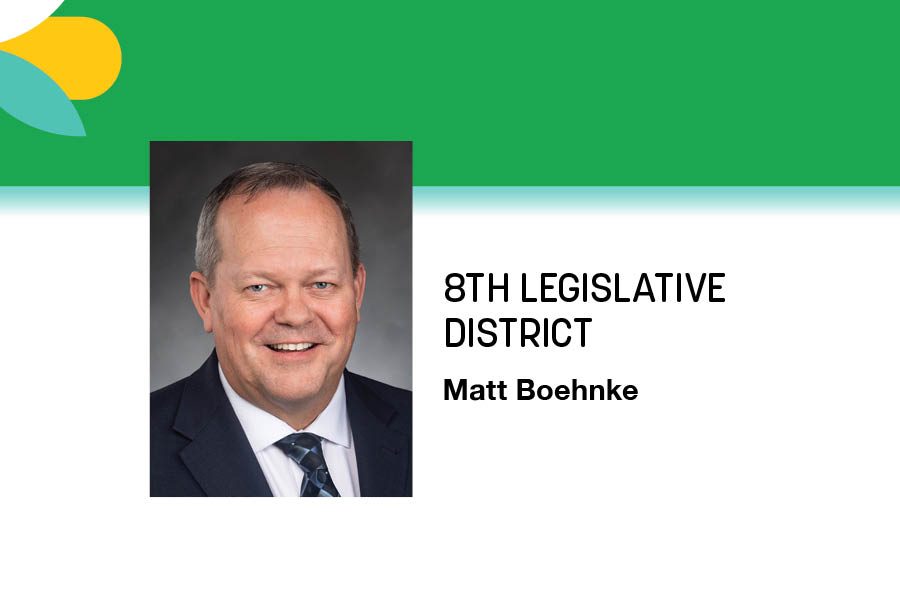
Home » Grid stability, nuclear innovation provide blueprint for sustainable growth
Grid stability, nuclear innovation provide blueprint for sustainable growth

December 14, 2023
By Matt Boehnke
In the wake of Washington state’s 2023 legislative session, marked by groundbreaking energy policy advancements, the state of Washington finds itself at the forefront of developing a sustainable, innovative and reliable grid. As we navigate the intricate landscape of energy policy, it becomes evident that our focus on advanced nuclear innovation and a resilient energy grid is imperative and sets the stage for a future characterized by environmental stewardship, economic growth and energy security.
Key energy policy milestones
In its pursuit of a sustainable energy future, Washington state laid the groundwork for transformative change during the last legislative session. Among the significant milestones achieved were incentives for renewable energy adoption, funding for grid modernization and an unwavering commitment to advanced nuclear research.
Last session, I sponsored Senate Bill 5167, which would have enhanced opportunities for public participation in the siting of new solar and wind facilities.
Our current certification process conflicts with opportunities for local review when these facilities are sited on agricultural lands. These new energy facilities have long-term significance in the commercial production of food or other agricultural products, and it is essential to ensure that the public has ample opportunity to weigh in when our state determines where facilities should go.
I sponsored SB 5168, which seeks to modernize the Energy Independence Act to avoid regulatory duplication and overlap with other laws. In summary, SB 5168 removes the requirement for qualifying utilities to meet annual renewable energy targets under the EIA because those utilities are already required to meet emissions limits required under a newer law called the Clean Energy Transformation Act.
In a bi-partisan fashion, I co-sponsored SB 5380, which concerns clean energy siting and creates a designation for coordinated permitting. The legislation also amends the State Environmental Policy Act processes for clean energy projects and establishes an interagency clean energy siting coordinating council.
I also supported SB 5447, which promotes Washington’s alternative jet fuel industry. After passing both houses during the last legislative session, the governor signed the bill into law in May of this year.
These initiatives underscore our dedication to reducing carbon emissions and emphasize the importance of fostering a robust and reliable energy infrastructure.
Ensuring grid reliability is a cornerstone of sustainable energy. With the policies enacted in 2023 as a solid foundation, Washington is now directing our attention toward enhancing the reliability of our power grid. This ambitious endeavor involves strategic investments in smart grid technologies and cybersecurity measures, pivotal for creating a resilient energy infrastructure.
On cybersecurity, I was the prime sponsor of Second Substitute Senate Bill 5518, which Gov. Inslee signed into law in April 2023, adding several new layers of governance to the state’s cybersecurity practices, including new advisory boards and giving the state’s Department of Commerce greater authority over infrastructure security.
This new law is about integrating cybersecurity into our emergency processes – which may affect the energy grid – the same way we do with floods, fires and other emergencies across the state. A reliable grid is not just a necessity; it is the linchpin for successfully integrating renewable energy sources and maintaining a consistent power supply to meet the needs of a growing population.
Spearheading energy innovation
I have served in several positions on key energy committees and continue to advocate for incorporating advanced nuclear technologies, such as Small Modular Reactors (SMRs).
SMRs are advanced nuclear reactors with a power capacity of up to 300 MW(e) per unit, about one-third of the generation capacity of traditional nuclear power reactors. SMRs produce a large amount of low-carbon electricity within a small and modular footprint. They can be deployed incrementally to match the increasing energy demand, which saves cost and construction time.
Washington’s proactive commitment to fund the Washington State University Tri-Cities Institute for Northwest Energy Futures (INEF) exemplifies our state’s leading role in the nuclear energy field. Our energy policies align with this trajectory and create an environment conducive to fostering nuclear innovation, signaling a commitment to diversifying our energy portfolio and reducing reliance on conventional sources in Richland.
Embracing emerging technologies
The 2023 policies laid a solid foundation, but progress demands ongoing commitment. Washington State must continue embracing diverse emerging technologies to fortify its energy grid. This includes advancing renewable energy sources and developing an “all options on the table” solution that ensures a stable and flexible energy infrastructure capable of meeting the evolving demands of the modern world now and into the future.
We must continue investing in workforce development to empower Washington’s energy sector. A crucial part of our energy policy revolves around preparing a skilled workforce for the future. This entails a comprehensive approach to education and training in critical areas such as apprentice programs, cybersecurity, artificial intelligence, nuclear technology and clean energy systems. By aligning our state’s policies and education initiatives and synchronizing with a growing energy industry, we empower our workforce to navigate the challenges and opportunities presented.
This year, Washington state’s energy policy achievements have laid a formidable foundation for the future. As we propel ourselves forward, focusing on grid reliability and advanced nuclear innovation positions us to meet environmental, economic and energy security goals head-on. By building upon the policies enacted, Washington can confidently stride toward a sustainable, reliable and innovative energy future that benefits current and future generations.
Sen. Matt Boehnke represents the 8th Legislative District and is a member of the Senate Environment, Energy and Technology Committee, chair of the Washington State Joint Committee on Energy Supply, Energy Conservation and Energy Resilience, and co-chair of the National Conference of State Legislatures Nuclear Working Group.
Latest News Energy
KEYWORDS December 2023




